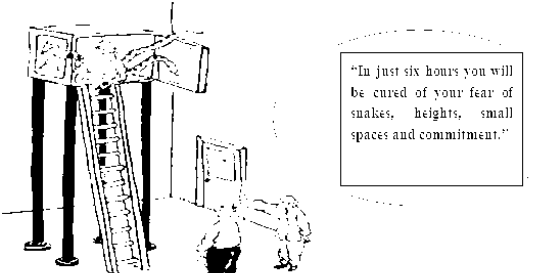题目内容
9.Before they (61)went (go) to England,Lenin and his wife had translated a whole book from English into Russian.They thought they had mastered (62)the English language quite well.After (63)arriving (arrive) in London,however,they found nobody understood them.This forced them to learn (64)spoken (speak) English from the beginning.They started going to all kinds of meetings.They sat in the front and carefully watched the speakers'(65)mouths (mouth).They went very often to Hyde Park to listen to people speaking freely on the situations at home (66)and abroad.Some time later,from a newspaper,Lenin learned that two Englishmen wanted(67)to exchange (exchange) lessons.Before long Lenin got in touch with(68)them.He taught them Russian and they taught him English.Lenin kept on studying with them for some time,and found his spoken English (69)greatly (great) improved.(70)In this way Lenin made rapid progress in his English study.分析 本文主要讲述Lenin学习英语的故事.当在伦敦的时候,利用一切可利用的机会学习英语,后来和两个英国人相互教英语和俄语来提高自己的英语,通过这样的方式,他在英语学习上取得了很大的进步.
解答 61.went 考查动词时态.全文谈的是过去的事情,要用一般过去时态.
62.the 考查冠词.此处的英语语言表示特指,要加定冠词the.
63.arriving 考查动名词.after是介词,后 接动词时要用动名词形式arriving.
64.spoken 考查固定搭配.spoken English意为"英语口语",是固定搭配.
65.mouths 考查名词复数.speaker意为"演讲者",speakers用了复数形式,mouth也应用复数形式.
66.and 考查固定搭配.at home and abraod意为"国内外",是固定搭配.
67.to exchange 考查动词不定式.want后接动词时用动词不定式形式.
68.them 考查代词.指代two Englishmen.
69.greatly 考查副词. improve是动词,要用副词修饰.形容词great的副词是greatly.
70.In 考查介词.in this way意为"用这种方法; 这样",是固定搭配.
点评 在一篇200词左右的语篇(短文或对话)中留出10处空白,部分空白的后面给出单词的基本形式,要求考生根据上下文填写空白处所需的内容或所提供单词的正确形式,所填写词语不得多于3个单词.要做好语法填空题,理解短文是解题的前提,扎实的词汇、句型和语法知识是基础,英语国家的背景知识是必要的补充.考生须灵活运用语法知识,如单词词性、单词时态、名词单复数、连接词、代词、冠词等判断各空白处应填写的内容.答完后,还要通读全文,核对所填单词形式是否正确,是否符合语境.

| A. | Mum did go | B. | did Mum go | C. | went Mum | D. | Mum went |
How to do it
To buy a RTW air ticket that uses one airline alliance(联盟)can save you a lot of money.Theoretically,any routing is possible,but knowing how the RTW booking system works will make your trip cheaper.For example,the Star Alliance,a coalition(联合) of 27airlines which fly to 1,185airports in 185countries,offers a RTW ticket with a maximum of 15stops.
There are rules:you must follow one global direction (east or west-no backtracking); you must start and finish in the same country; and it will be better if you book all of your flights before departure(出发),though you can change them later (which may cause extra charges).
When to go
The weather will never be ideal in all of your stops.So,focus on what you want to do most and research conditions there.If a Himalaya trek is your highlight,do not land in Nepal mid-monsoon season; if you want to swim with whale sharks off the coast of Western Australia,be there between April and July.Then accept you will be in some regions at the"wrong"time-though this might offer unexpected benefits (for example,Zambia in wet season means lush landscapes and cheaper prices).
In general,city sightseeing can be done all the year round (escape extreme heat/cold/rain in museums and cafes) but outdoor adventures are more reliant on-and enjoyable in-the right weather.
Where to go
The classic (and cheapest) RTW tickets flit between a few big cities,for example London-Bangkok-Singapore-Sydney-LA.If you want to link more offbeat(标新立异的) hubs (Baku-Kinshasa-Paramaribo,anyone?),prices will climb considerably.The cost of the ticket is based on the total distance covered or the number of countries visited.
Remember,you do not have to fly between each point:in Australia you could land in Perth,travel overland and fly out of Cairns.Or fly into Moscow,board the Trans-Siberian train and fly onwards from Beijing.
Pick some personal highlights and string the rest of your route around those.For instance,if you are a keen trekker,flesh out a Peru (Inca Trail),New Zealand (Milford Track) and Nepal (Everest Base Camp) route with Brazil (Rio's a good access point for South America),Australia and northern India.
If budget is an issue,spend more time in less expensive countries.Your daily outgoings will be far higher in Europe and North America than in South-East Asia.Indonesia,Bolivia and India are particularly cheap.
Pay attention:
Talk to an expert before you book:you may have a route in mind but an experienced RTW flight booker will know which routings work best and cost least-a few tweaks could mean big savings.
Be flexible:moving your departure date by a few days can save money; mid-week flights are generally cheaper,as are flights on Christmas Day.
Think about internal travel:it can be cheaper to book internal flights at the same time as booking your RTW ticket.But,with the global increase of low-cost airlines,you may find it better (and more flexible) to buy them separately as you go.
Be warned:if you do not board one of your booked flights (say,on a whim,you decide to travel overland from Bangkok to Singapore rather than fly it) your airline is likely to cancel all subsequent(后来的) flights.
A (71)Guide to a Round-the-World Trip
| How to do it | •To buy a RTW air ticket (72)usingone airline alliance is a most economical way. •To follow one global direction and start and finish in the same country; •To book all flights before you (73)depart/leave. |
| When to go | •To arrive at your destination at the right time,(74)researchweather conditions in advance. •To be in some regions at the‘wrong'time offers benefits beyond (75)expectation(s). •Generally,city sightseeing can be done all the year round,but outdoor (76)adventures are more enjoyable in the right weather. |
| Where to go | •Cheap cities like London and Sydney. •Unusual places like Baku (77)costingmuch more. •Less expensive places in consideration of(78)budget. |
| (79)Tips/Suggestions/Adviceand warnings | •Turning to an expert before you book. •Being flexible about your departure date. •(80)Failing/Failure to board one of your booked flights may lead to the cancel of all subsequent flights. |
| A. | drop out | B. | come out | C. | leave out | D. | put out |
| A. | turn on | B. | turn off | C. | turn over | D. | turn to |
| A. | Not having combed | B. | Having not combed | ||
| C. | Not combing | D. | Not combed |
